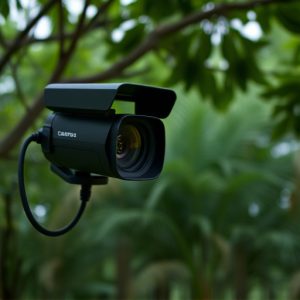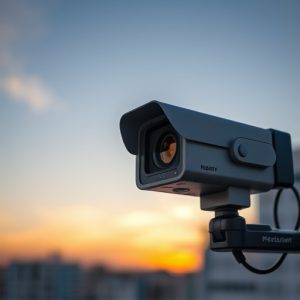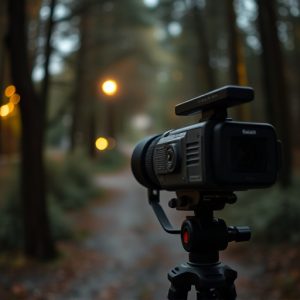Hidden Cameras in Rentals: Understanding Night Vision Surveillance Legalities
In the digital age, tenants should be aware of hidden surveillance risks, especially from compact &q…….
In the digital age, tenants should be aware of hidden surveillance risks, especially from compact "hidden cameras with night vision recording" that can capture high-quality footage undetected. Landlords considering these devices for rental properties must adhere to privacy laws to avoid legal issues, as their strategic placement offers enhanced security but invades tenant privacy. Consulting a legal expert before setup is crucial for maintaining a harmonious relationship with tenants.
In today’s digital age, landlords often employ sophisticated techniques for property monitoring, including hidden cameras with night vision recording capabilities. While these devices serve as tools for security and dispute resolution, they raise significant concerns regarding tenant privacy. This article delves into the intricate world of secret surveillance in rental properties, exploring the legal boundaries, common surveillance spots, and essential rights of both tenants and landlords. Understanding these dynamics is crucial to fostering a harmonious relationship between property owners and renters.
- Understanding Hidden Cameras in Rental Properties
- – Definition and purpose of hidden cameras
- – Legal implications for landlords installing hidden cameras
Understanding Hidden Cameras in Rental Properties
In today’s digital age, it’s crucial for tenants to be aware of potential hidden surveillance spots in their rental properties. While landlords have a right to certain privacy measures, the use of hidden cameras, especially those with night vision recording capabilities, raises significant concerns. These sophisticated devices can capture high-quality images and videos in low-light conditions, making them nearly undetectable.
Tenants should be vigilant about checking for these hidden camera setups, which might be strategically placed in areas like ceilings, door frames, or even within everyday objects like smoke detectors or light switches. Understanding the potential risks associated with such devices is essential to protect one’s privacy and ensure a safe living environment.
– Definition and purpose of hidden cameras
Hidden cameras, also known as surveillance cameras with covert capabilities, are devices designed to capture and record footage discreetly, often in locations that remain unseen by individuals being monitored. These cameras are equipped with advanced features like night vision recording, making them ideal for capturing evidence or monitoring activities without raising suspicion. The primary purpose of a hidden camera is to provide a level of privacy and security for homeowners or businesses while allowing them to observe and record events remotely.
With their small size and ability to function in low-light conditions, hidden cameras with night vision recording can be strategically placed in rental properties to ensure the safety of both tenants and landlords. These devices can help prevent property damage, theft, or even uncover instances of illegal activity within the premises, offering a sense of peace of mind for all parties involved.
– Legal implications for landlords installing hidden cameras
Landlords considering installation of hidden cameras in rental properties must be aware of stringent legal implications. While there are legitimate reasons for deploying such devices, like enhancing security and deterring unauthorized access, these actions must comply with privacy laws. Many jurisdictions have strict rules regarding surveillance, particularly when it comes to hidden cameras with night vision recording capabilities, which can capture intimate details and personal spaces.
Violation of these laws can result in significant fines and legal repercussions. It’s crucial for landlords to understand the scope and limitations of their rights, ensuring that any camera placement respects tenant privacy. Consulting a legal expert is advisable before setting up hidden cameras with night vision recording to avoid potential issues and maintain a harmonious relationship with tenants.
While the use of technology like hidden cameras with night vision recording can seem appealing for landlords to maintain property security, it’s crucial to balance this with privacy rights. Landlords must adhere to strict legal guidelines regarding installation and use, ensuring transparency and proportionate measures. Protecting tenant privacy is paramount, and any surveillance should respect the law to foster a fair and secure rental environment.


